Estimated reading time: 8 minutes
Mother cats may bite their kittens as a form of communication, teaching, or protection. This behavior, rooted in natural instincts, serves several purposes: to teach kittens boundaries, to move them to safer locations, or to groom hard-to-reach spots. However, excessive or aggressive biting could indicate stress, health issues, or other underlying concerns.
Picture this: a gentle mother cat, usually tender with her newborn kittens, starts to bite her kitten’s neck or becomes aggressive towards her young. This scene, while concerning at first glance, is embedded in the feline world’s intricate tapestry.
Is it normal for mother cats to bite their kittens as a way of teaching, or could there be more lurking beneath the surface? From understanding that biting can be part of a mother cat’s nurturing, to considering the role of male cats and their inherent instincts, this article unravels the reasons why mother cats might bite their adorable litter and what you should look out for.
Understanding Mother Cat Behavior
Cats have been domesticated for centuries, but some of their wild instincts remain. When you see your cat playing with her kittens, it’s often an endearing sight. But what about when a mother cat bites her kittens? Is this part of a mother cat’s natural instinct?
Well, it’s common for a mother cat to bite or scratch her kittens as a way to teach them important life skills. Just like how humans guide their children, mother cats teach their kittens certain behaviors essential for survival. These bites might be seen around the kitten’s neck, a vulnerable area, signaling that it’s a lesson in defense. But, it’s not always about teaching; sometimes, a cat’s biting behavior can be protective.
For instance, if a potential threat lurks, a mother cat may move her kittens to a safer spot. How does she do this? By gently biting the kitten’s neck and carrying them. If you’ve ever witnessed this, it’s a testament to the strength and care of the mother cat’s bite – forceful enough to carry, yet gentle enough not to harm.
It’s important to differentiate between these instinctual behaviors and aggression. The severity of the bite, the circumstances, and the reactions of the kittens are crucial indicators. If the kittens seem distressed, or if the mother cat is biting or kicking them without a clear reason, it could be a sign of stress or a health issue.
While kittens are adorable and rely on their mother for nearly everything, understanding that biting, in some cases, can be a normal part of a mother cat’s behavior is essential. Yet, it’s equally important to monitor and ensure that this behavior doesn’t become harmful.
Why a Mom Cat Bites Her Kittens
Communication and Teaching
Kittens need guidance, much like young humans. A mother cat will often rely on her bite as a form of communication. For instance, she might bite to teach her kittens how to behave. This isn’t aggressive; it’s a part of their learning process.
Imagine a litter of kittens, all playful and curious. If one starts to bite or play too roughly with its sibling, the mother cat may intervene. She’ll give a gentle nip as if to say, “That’s too rough, play nicely.” This behavior helps kittens understand boundaries. This is also why you might sometimes see a mom cat bite her kitten’s neck. It’s a clear sign for the kitten to stop and listen.
Protective Measures
Protection is often at the heart of a mother cat’s actions. If you’ve ever had a new kitten introduced to an older cat, you might have seen some protective behavior. The mother cat needs to ensure the safety of her kittens around potential threats.
Now, imagine a scenario where a mother cat has her kittens in a busy household. Unexpected noises, new people, or even other pets can be perceived as threats. In these situations, the mother cat may become protective and move the kittens to a quieter spot. When she does this, she’ll gently bite the kitten’s neck, picking them up and relocating them.
While cats often show love and tenderness towards their kittens, they are also fierce protectors. Recognizing the reasons why a mother cat bites her kittens can make it easier to ensure a harmonious relationship between the mother and her kittens.
When the Biting is Concerning
Abandonment Concerns
Every cat owner cherishes the bond between a mother and her kittens. Yet, sometimes things don’t go as smoothly. If you notice that a mother cat starts to bite her kittens aggressively without a clear cause, it might indicate stress or even the possibility that she might abandon her kittens.
Why would a mother cat do this? While it’s rare, certain conditions can influence her behavior. For instance, if the mother cat feels that a kitten in the litter isn’t thriving or has health issues, she might distance herself. This is a hard-wired instinct from their wilder days when ensuring the survival of the majority was essential.
Male Cats and Their Role
Another factor to consider is the presence of male cats. In the wild, male cats, especially ones not related to the kittens, might pose a threat. A mother cat could be biting and kicking her kittens as a signal to male cats to stay away, or even in an attempt to mask their scent. It sounds harsh, but it’s an instinctive move to protect her brood.
In a household, while male cats have been domesticated, some can still show signs of this behavior. This is particularly true if they aren’t neutered. If you notice aggressive behavior from a mother cat towards her kittens when a male cat is around, it might be time to separate them and provide a stress-free environment for the mother and kitten.
Recognizing these signs early on and understanding the reasons why mother cats bite their kittens can prevent more significant issues down the line. When in doubt, always consult with a veterinarian. They can provide insight into the cat’s behavior and recommend the best course of action.
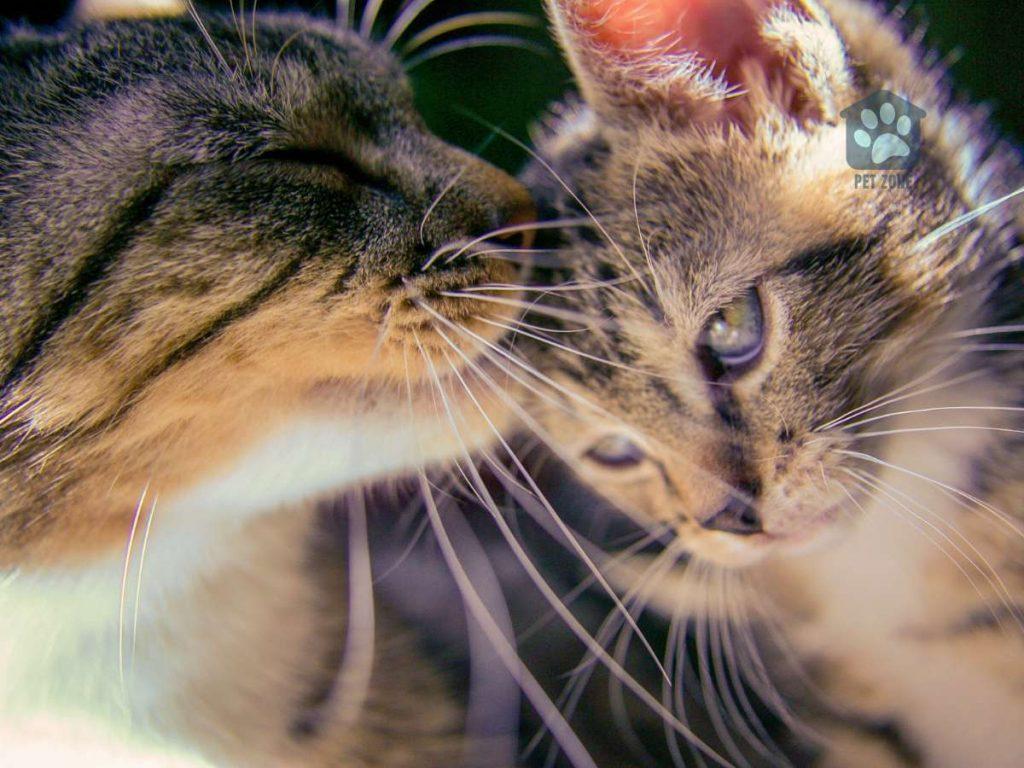
How to Stop a Mother Cat From Biting Excessively
Differentiating Types of Bites
For a new cat owner, distinguishing between a gentle nibble and an aggressive bite might be challenging. But understanding the differences can make a world of difference in the wellbeing of kittens.
When a mother cat grooms her kittens, she may bite them lightly. This is usually gentle and more of a nibble. It’s her way of cleaning areas the kittens can’t reach, or simply showing affection.
However, when the bite leaves marks, causes distress to the kitten, or is accompanied by hissing, it becomes a cause for concern. The cat’s bite, in this case, might be a sign of an underlying issue.
Methods to Try
Biting can sometimes go beyond the usual teaching or protective measures. If you notice the mother cat biting the kittens aggressively, it’s crucial to intervene. But how do you stop a mother cat from biting without causing more stress?
- Separation: Sometimes, giving the mother cat and kittens some space can help. Ensure both parties have a comfortable spot to relax.
- Distraction: If the mother cat is biting out of stress or anxiety, providing her with a toy might help divert her attention and stop biting.
- Check for Health Issues: Sometimes, a mother cat’s aggressive behavior stems from health concerns. If she or her kittens are unwell, her behavior might change. It’s always a good idea to consult a vet if you’re unsure.
- Environment: Ensure the environment is calm. Loud noises, other pets, or even frequent handling of the kittens can cause stress. If the mother cat feels her kittens are always at risk, she might resort to aggressive behavior as a protective measure.
Remember, as a cat owner, your goal is to create a safe and nurturing environment for both the mother and her baby kittens. Being observant, understanding cat behavior, and acting promptly can ensure a happy and healthy bond between them.
Helpful Tips for Cat Owners
Introducing New Kittens
Welcoming a new kitten into the fold can be an exciting experience. However, if there’s already a mother cat and kittens in the home, things can get a bit complex. When introducing a new kitten, always do it gradually. This reduces stress and minimizes the likelihood of the mother cat becoming aggressive toward the newcomer.
Avoiding Stressors
Kittens around the house can be quite a handful. Their playful nature, combined with their boundless energy, can sometimes overwhelm a mother cat. Ensure the environment remains calm, especially in the initial weeks. This means reducing loud noises, keeping other pets at bay, and ensuring the mother cat has a quiet space to retreat to with her kittens.
Educate Yourself on Cat Behavior
Cats often communicate in ways that might be elusive to us. By understanding common cat behaviors, you can gauge if a mother cat’s actions towards her kittens are part of her nurturing role or if there’s a genuine concern.
Seek Professional Advice
If ever in doubt, don’t hesitate to contact a veterinarian. They can offer insights, especially if you’re concerned about the severity of the bite or the frequency. They can also provide guidance on how to stop your cat from biting or suggest behavioral experts if needed.
Lastly, remember that kittens need time and guidance. As they grow, their dynamics with their mother will evolve. Be patient, stay observant, and always ensure the well-being of both the mother cat and her kittens.
Conclusion: Some Biting is Normal for Mother Cats
Cats, like all creatures, carry a mix of instinctual behaviors and learned actions. The bond between a mother cat and her kittens is profound, filled with lessons, protection, and, occasionally, discipline. For the untrained eye, certain behaviors, like biting, might seem concerning. However, understanding the reasons behind such actions provides clarity.
Mother cats bite their kittens for a range of reasons – to teach, to protect, to communicate. However, as with all behaviors, moderation is key. Excessive biting can hint at underlying issues, either with the health of the cat or external stressors in her environment.
For every cat owner, the journey is about balance. Recognizing when to intervene and when to let nature take its course is vital. When in doubt, seeking advice from professionals or experienced cat owners can be invaluable.
As an Amazon Associate I earn from qualifying purchases.
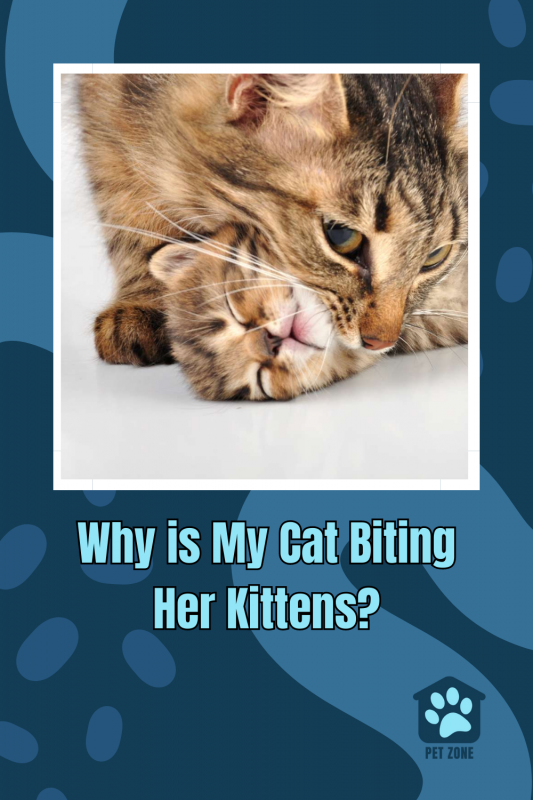


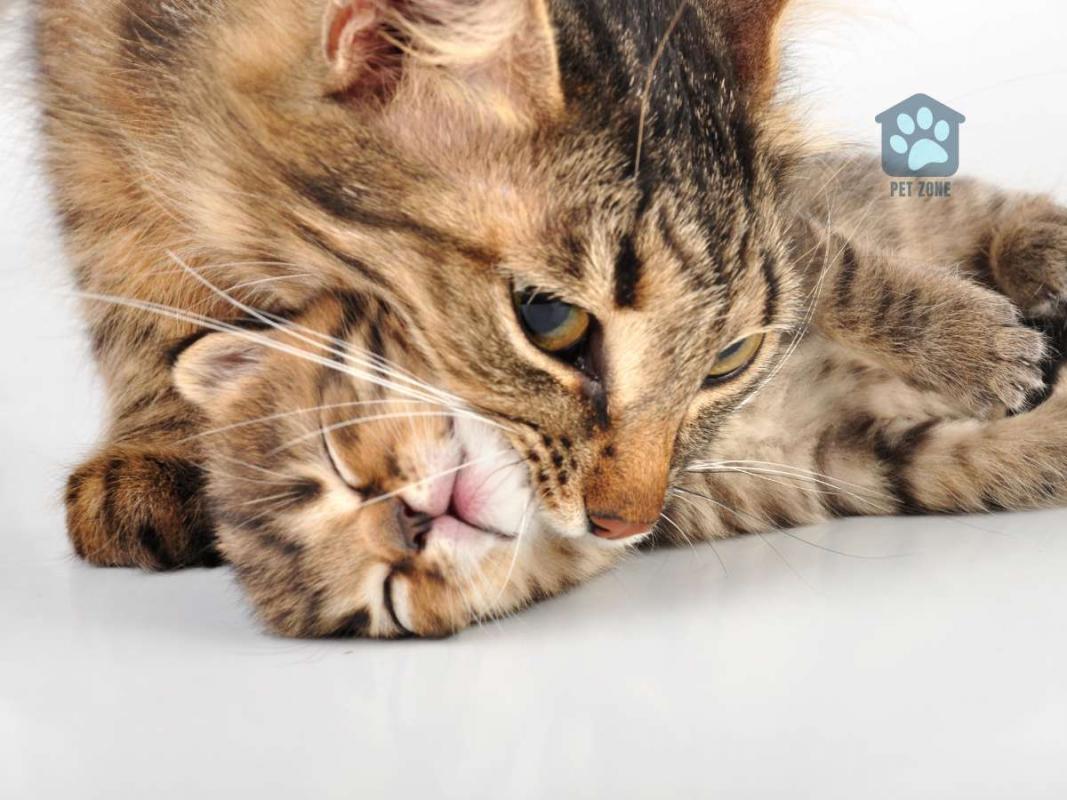
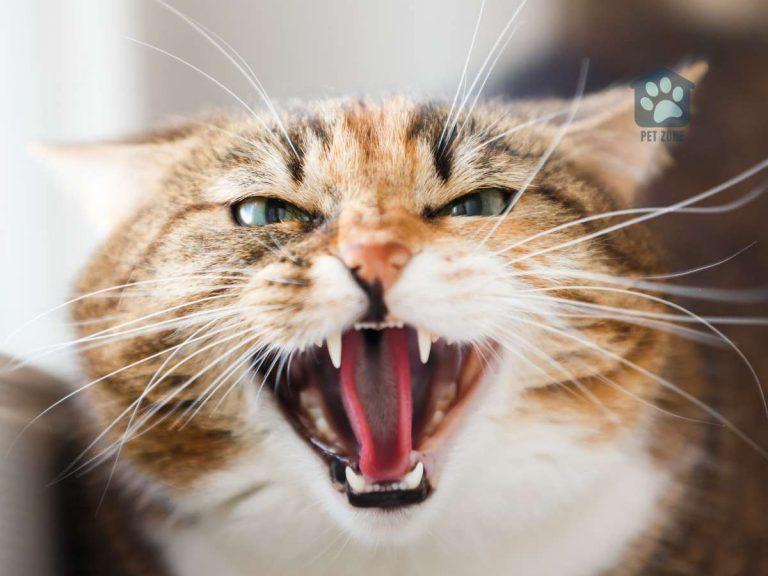

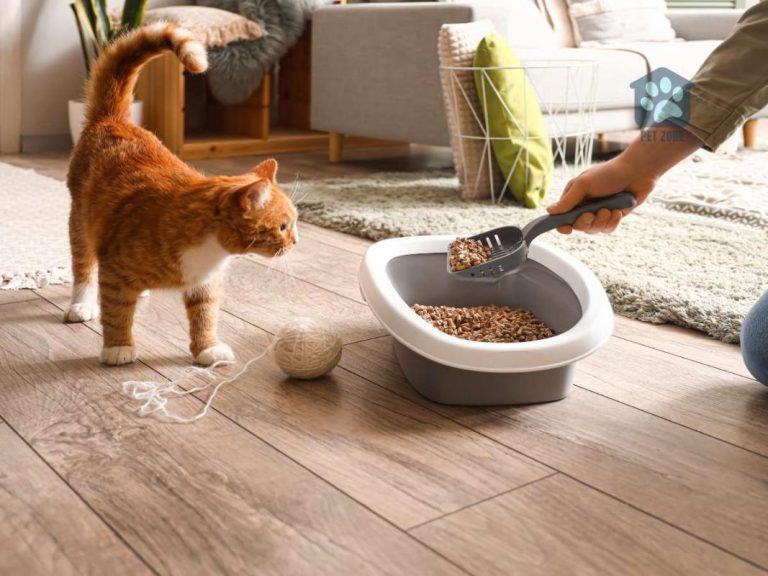

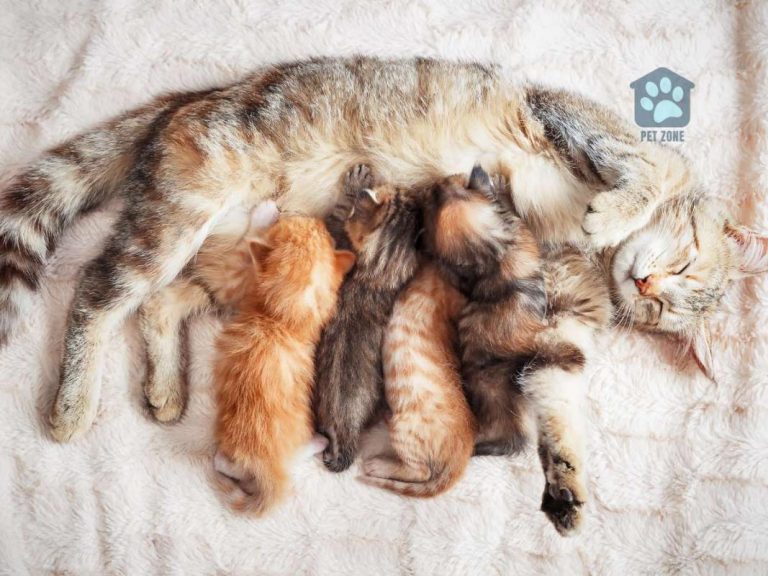
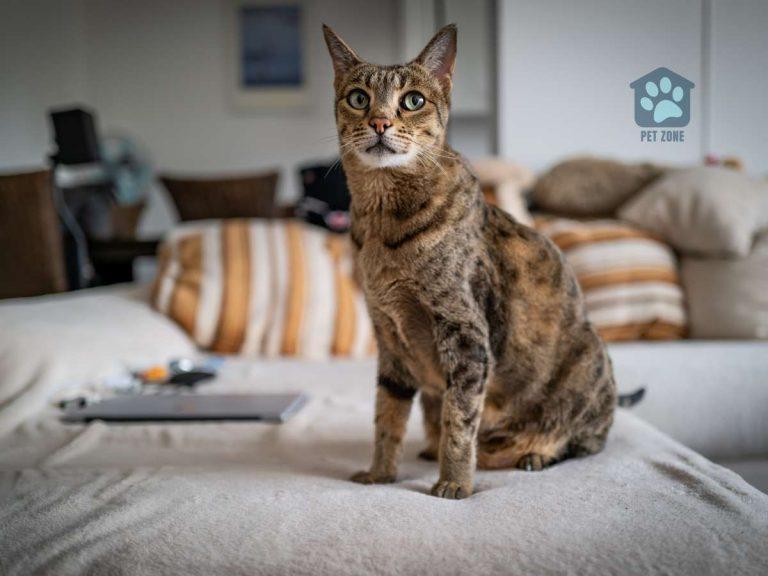
Great information! Thanks to improve my understanding about cats. Understanding the behavior of my cat is necessary. Your tips for cat owners are helpful and practical.
I am a cat lover, and I am really happy with your educational posts about animal behavior, especially cats. Thank you!
I love cats. This is a great post on explaining their behaviors, very helpful!
Interesting! As a future cat mom I’ll be sure to try these methods for excess biting or talk to someone.